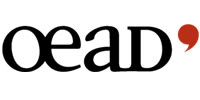Study in Austria: Education in Austria

The Austrian education system includes accredited and internationally-oriented universities that can be characterized as a multicultural, fast-paced, innovative and research-oriented, ready to welcome prospective students that aim to thrive professionally. In line with the ‘’Bologna’’ process, the Austrian education system structure is three-tiered and includes Bachelor’s, Master’s and Doctorate degrees.
Austria is a popular study destination and 29% of its international students come from Germany. The Austrian education system’s institutions differ from each other in structure and academic goals. For instance, traditional universities like the University of Vienna, Graz and Innsbruck among others, offer a wide spectrum of academic disciplines for any taste.
Technical and medical universities focus more on specialized applied and theoretical disciplines. Universities of the Arts like the Academy of Fine Arts in Vienna cover music, dramatic arts, fine and applied arts. For all higher education institutions though, the core values are centered around teaching, excellence and research.
In Austria you can also find numerous private universities like the Central European University, the Sigmund Freud University and the Modul University of Vienna. They offer top quality education with innovative teaching methods and constantly newly updated programs by taking into account the latest trends in education and the needs of society.
If you are looking for programs in IT, Business, Health Sciences or Engineering, the Universities of Applied Sciences (UAS) are a perfect match for you. They offer mandatory practical training or job-based internships during studies and since the number of students is limited, an entrance examination should be completed in order to be granted admission.
In Austria you can also find University Colleges for Teacher Education, divided into teaching qualifications in primary and secondary education. These public and private colleges offer teaching qualifications at a primary level established as four year, years, Bachelor’s, one year and master level degree programs. There are five private Teacher Education Colleges and also nine public ones, run by the nine states.
The Austrian education system is based on a 5-scale grading as follows:
- 1. Sehr Gut: Very Good
- 2. Gut: Good
- 3. Befriedigend: Satisfactory
- 4. Genügend: Adequate
- 5. Nicht Genügend: Unsatisfactory, Fail.
The University Preparation Programmes
Have you been admitted to an Austrian university but you need extra support for supplementary examinations by the university before you start your studies? The University Preparation Programmes in Vienna, Graz and Leoben are here to help you. They offer courses in German language, in English, mathematics, physics, chemistry, biology or history so you make sure you enter your studies with more confidence.
Note that you can enrol to these courses only if you can prove you have been admitted to an Austrian university. Depending on your program and the needs you have, you select the program or preparatory courses of your choice and you start learning!
How long is a Bachelor’s degree?
Picking a higher education institution in Austria could be a challenge. Will you choose a private or a public university, a University College of Teacher Education or a University of Applied Sciences? You have so many interesting options! In Austria, a Bachelor’s degree is awarded after the completion of three or four years of education, depending on the institution and discipline.
The academic year in the Austrian education system runs from mid-September or October and ends in September of the following year with some breaks in between for summer and winter breaks, Easter and Christmas vacations.
Until 2001, higher education was entirely free for the public. Since then, reforms took place in the education system and tuition fees were applied, both for European and international students. No reason to stress though. The Bachelor’s study cost is quite reasonable ranging from 300 to 700 EUR per academic semester.
In order to get admitted for a Bachelor’s in Austria, you will need to gather particular documents, depending on your nationality status . If you are a European citizen, then you will only need proof of nationality (copy of your passport), a secondary school certificate from your home country and a German language certificate proving you know the language.
If you are an international student, then, above the aforementioned documents, you will also need a certificate of special qualification for university studies (Nachweis der besonderen Universitätsreife) since you have to prove that you would be entitled to admission to your chosen degree programme in the country which issued your secondary education diploma.
The type of institution is important when it comes to admission requirements, as the selection process among private, public, Teaching Universities and Universities of Applied Sciences differ. In order to be fully prepared, contact the institutions you are mostly keen on and navigate through their official websites for additional information.
As for the German language qualification for your admission into Austrian universities, keep in mind the level of German language proficiency you need to maintain. Some institutions require a B2 level of Common European Framework of Reference for Languages, while others will require a C1 level.
You might have a lower level and still get admitted but you will have to study a pre-German course before the degree starts. You can even start learning German before your arrival! The certifications accepted in that regard are the ones acquired from:
- The Österreichisches Sprachdiplom Deutsch (ÖSD)
- Goethe Institute
- Telc Deutsch
- TestDaF Institut
Master Studies in the Austrian University System
After the completion of your Bachelor’s studies, you will be able to apply for a Master’s degree in Austria. For your admission you will need to have completed an at least six semester relevant Bachelor’s degree of minimum 180 ECTS. You can either choose to study in English or German depending on the programme you are choosing and provide proof of the language proficiency. In fact, you can find a lot of Master’s programs in English.
Master’s studies in Austria are very flexible and there’s a big range of study lengths depending on the discipline. In general, Master’s in Austria may take up to two years (120-150 ECTS) of full time study including dissertation. Master’s at Fachhochschulen is about 60 ECTS credits. Austria diplomas programs can even take up to six years to be completed, due to the fact that they combine undergraduate and postgraduate education and offer 240-360 ECTS credits.
Doctorate studies in Austria: Everything you need to know
In order to get admitted at the highest level of education in Austria, you will need to have successfully completed a Master’s degree in the same field of study as your research proposal or equivalent. Austria is a country that offers amazing PhD opportunities and is considered a modern hub of innovative and interdisciplinary doctorate research.
Good to know is that if you are a European citizen and choose to study at a public university in Austria, you pay zero tuition fees, as long as you complete your education on time. In addition to that, as a PhD student in Austria you have increased chances to be employed as a staff member with multiple benefits and a salary set by the institution.
If you are a non-European citizen then we also have good news for you! Just recently, Austria extended the amount of time you can stay in Austria and search for a job after Doctorate graduation, from six to twelve months.
International students are asked to pay fees for their Doctorate studies, but the cost is set to only around 750 EUR per semester. For private universities, keep in mind that the cost is significantly higher for all applicants, fluctuating approximately around 7.500 EUR per term, depending on the rules of each private university.
The length of Doctorate studies in Austria is around three to four years for full time studies. Mostly it is set on three years if you have completed your Master’s education. If not, then additional courses might be added so your Doctorate will extend up to four years. If you delay to complete your studies, additional fees might be applied.
Study in Austria - Overview
Over 60,000 international students choose Austria as their study abroad destination every year. Click here to learn why.
Student Visas
Do you need a visa to enter Austria to study? Learn more about the student visa process, and what you need to enter the country, depending on your citizen status. You will also be required to bring certain documents with you to passport control at the airport, which we cover as well.
Housing & Living Costs
No matter where you study abroad, it’s important to create a budget in advance so that you’re prepared. Therefore, we’ve detailed average living and housing costs so that you can get a better idea of what you would be paying as a student in Austria.
Tuition Fees & Scholarships
Tuition fees for degree programs in Austria may vary. To cover the rest of the costs, there're some scholarship opportunities available.
Language & Culture
Austria is a country rich in history and culture. Find out more about what the country offers in terms of language, culture, and more!
Application Process
All countries have specific admissions requirements for students to gain acceptance into a university. Learn more about the ins and outs of admission to programs in Austria, and what you need to apply, depending on your citizenship.
Programs
Ready to look at education in Austria? Use our search engine to find and compare top programs in Austria today!
The content of this Study in Austria guide has been developed by OeAD - Austrian Agency for International Cooperation in Education and Research.

About OeAD
OeAD is Austria’s leading non-profit-making service organization in the field of international cooperation in education and research. The activities of the OeAD embrace general, academic, and vocational education with – historically grown – specific focus on academic mobility.

Author
The Keystone Team is comprised of experienced educators and advisors dedicated to providing valuable resources and advice to students all over the world.